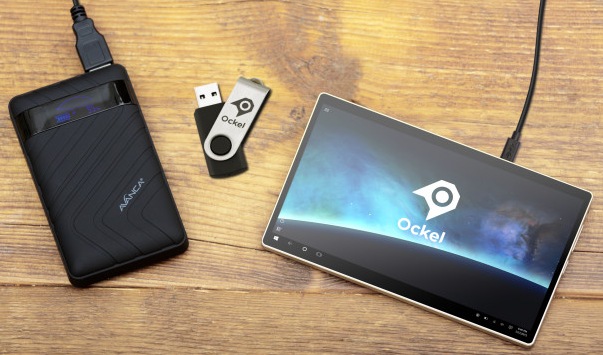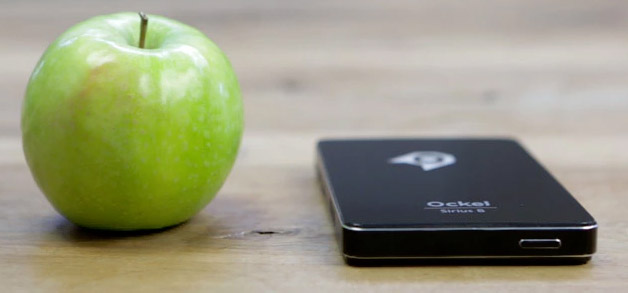 Some desktop computer users would carry around their desktop computer with them to get the same level of performance they’re used to while traveling … if only that desktop PC wasn’t so large and heavy, that is.
Some desktop computer users would carry around their desktop computer with them to get the same level of performance they’re used to while traveling … if only that desktop PC wasn’t so large and heavy, that is.
Ockel Sirius A is a tiny PC with a 6-inch touchscreen, Intel Atom x7-Z8750 processor, and battery that provides a full Windows 10 experience at any time. It’s small enough to fit in a pocket or the palm of the user’s hand, and it comes equipped with a full version of Microsoft’s Windows 10 Home or Pro operating system. The display offers full HD 1920 x 1080p resolution and also supports 4K.
Sirius A ships in May at future pricing of $699 for the standard A with 64 GB of flash storage or $799 for the A Pro with 128 GB of flash storage. But Indiegogo backers have been able to reserve them with a pledge starting at early-bird pricing of $549 for the A and $659 for the A Pro. Its makers are out to raise $100,000 by Nov. 9.
Its creator, Ockel Computers, already successfully crowdfunded the similar Sirius B that didn’t come with a display and was designed to be attached to a separate monitor. So, an even more portable version with a display seems to be a sensible option that could appeal to many potential buyers.





 Kphob
Kphob